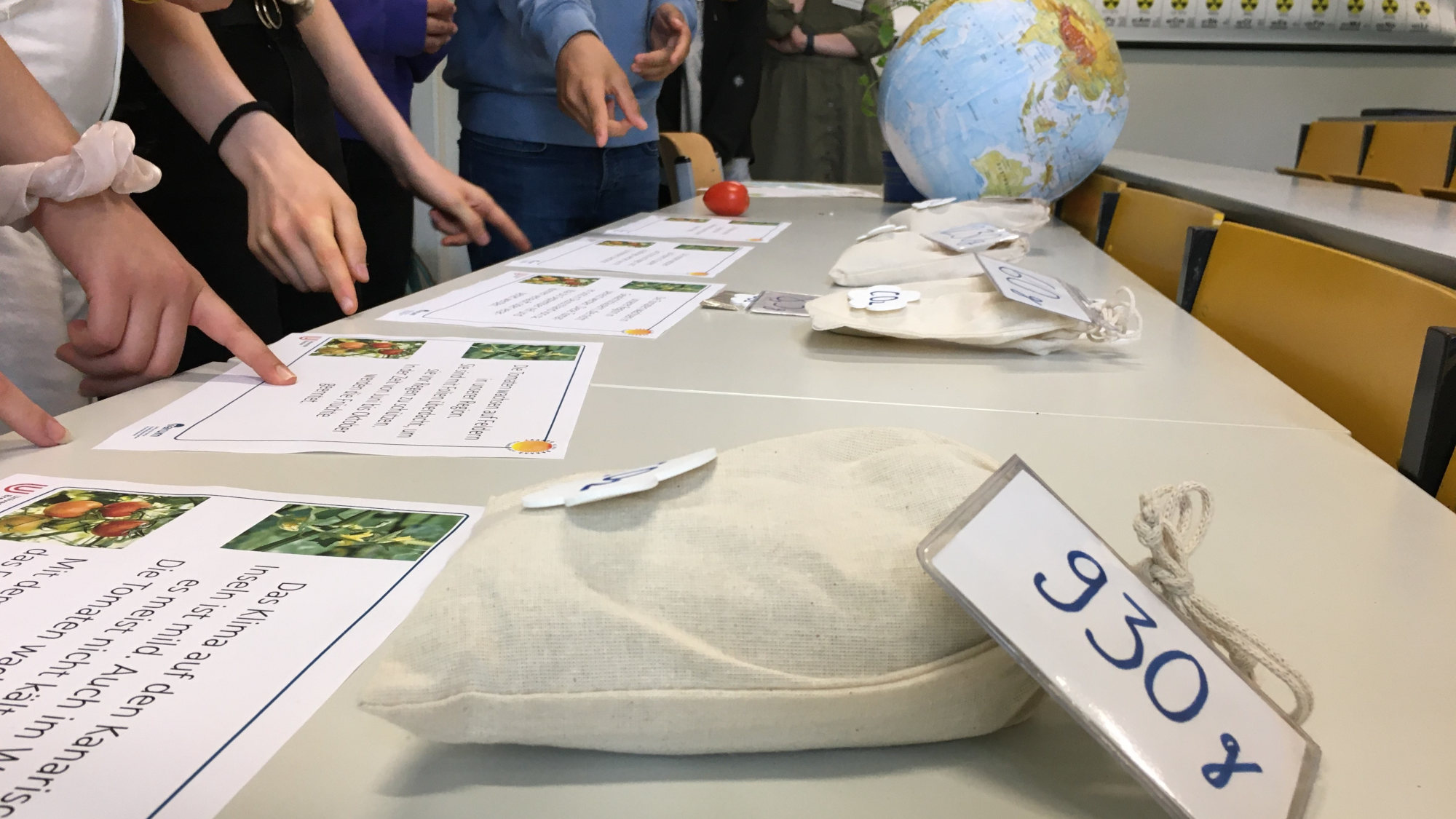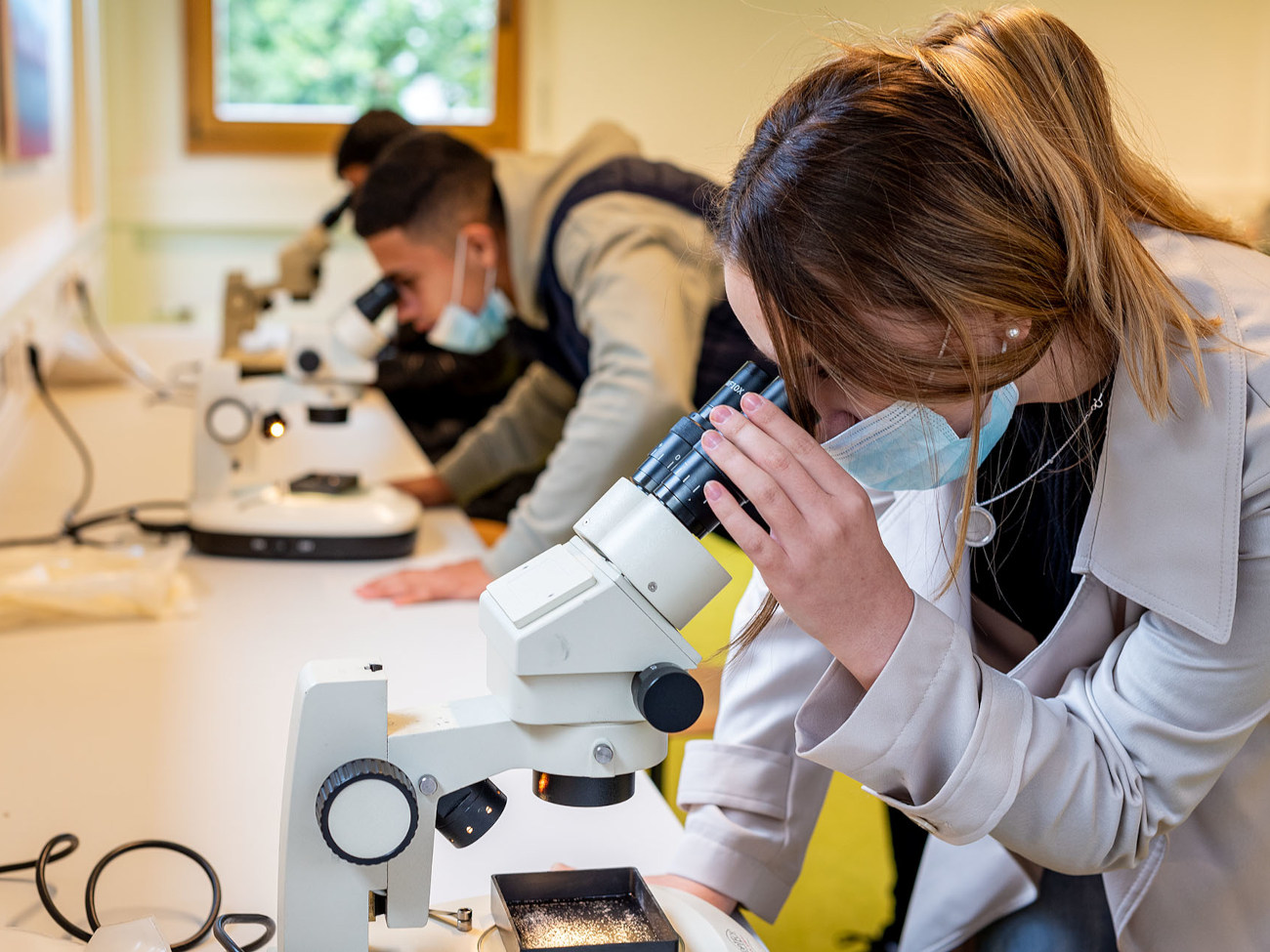
© MARUM, Schulprojekt "Klima-ich wandle mich!"
“Climate – I’m Changing” School Project
Empowering Schools to Take Climate Action
Almost every day, students face the causes and consequences of the climate crisis. But how are they supposed to deal with them? How can they translate their desire for change into active, personal participation in creating a sustainable future? In cooperation with four pilot schools in Bremen and Bremerhaven, the “Climate – I’m changing!” project by MARUM has developed and tested science-based courses and teaching materials to raise awareness of climate issues among children and young people. As the pilot phase has ended, the concept can be applied now at other schools in Bremen State.
In 2020, the “Climate – I’m changing!” project initiated by MARUM was launched in Bremen and Bremerhaven. The secondary schools involved were the Neue Oberschule Gröpelingen, the Oberschule an der Egge (Bremen Blumenthal), the Schule am Leher Markt in Bremerhaven, and the Wilhelm-Olbers-Oberschule (Bremen Hemelingen). The aim of the project is to develop an empowering and inclusive teaching concept that raises awareness among children and young people about climate change and climate protection. The content, approaches and teaching materials are based on the principles of Education for Sustainable Development (ESD) and are intended to empower and motivate students to independent action. The courses are tailored to the Bremen educational curriculum and are designed to be adaptable, so that they can be used in other schools in the future.
Collaborative Climate Action Is Multi-Faceted and Can Be Fun
“Every day, and in various aspects of our everyday lives, we are presented with opportunities to make decisions either for or against climate-protective and sustainable actions,” says Dr. Sylvia Stegmann, coordinator of the “Climate – I’m changing!” project. “These opportunities are diverse, and they differ individually. With the teaching modules of ‘Climate – I’m changing!’ we would like to sensitize students to the challenges of the climate crisis while empowering them to develop climate-protection ideas of their own, and to incorporate these into their everyday lives. This framework of intimate participation gives students an opportunity to test themselves in shaping the future for the environment and society and thus to realize that collaborative climate action is multi-faceted and can even be fun!”

© MARUM, Schulprojekt “Klima-ich wandle mich!”
In cooperation with the four pilot schools from Bremen State, the MARUM project team has developed and tested science-based courses and teaching materials. The courses were directly integrated into the classes of the pilot schools over a period of two school years. Through experiments in the MARUM UNISchool Laboratory, the students investigated the fundamental impacts of anthropogenic climate change on the climate system and on the environment. The “Climate Course” was integrated into the lessons of the 7th-grade students, and explored the regional and global consequences of climate change. With the slogan “my actions matter!” students from the 9th and 10th grades developed and presented their own ideas for climate protection and sustainable action in a project course that lasted several weeks. Creativity and building skills were required for students to design their own visions for building and living in the climate of the future, and to implement their ideas in the construction of a model “sustainability house.”
Material Is Constantly Being Further Developed and Can Be Used by Schools
With the experience gained through practice, the courses and all the teaching materials are undergoing constant further development. This requires the interaction between teachers and researchers, which is an essential component of the project. “For the long term, we want to offer an open network for climate education in Bremen State, in which all of the Bremen schools can participate,” Stegmann emphasizes. “Thanks to the great dedication of all the teachers involved in the pilot schools, the courses and materials will become freely available after their final revision. We hope that they will reach and inspire many schools, teachers, and students. Protecting the climate, and with it our environment and society, can only be successful if we all take part.”